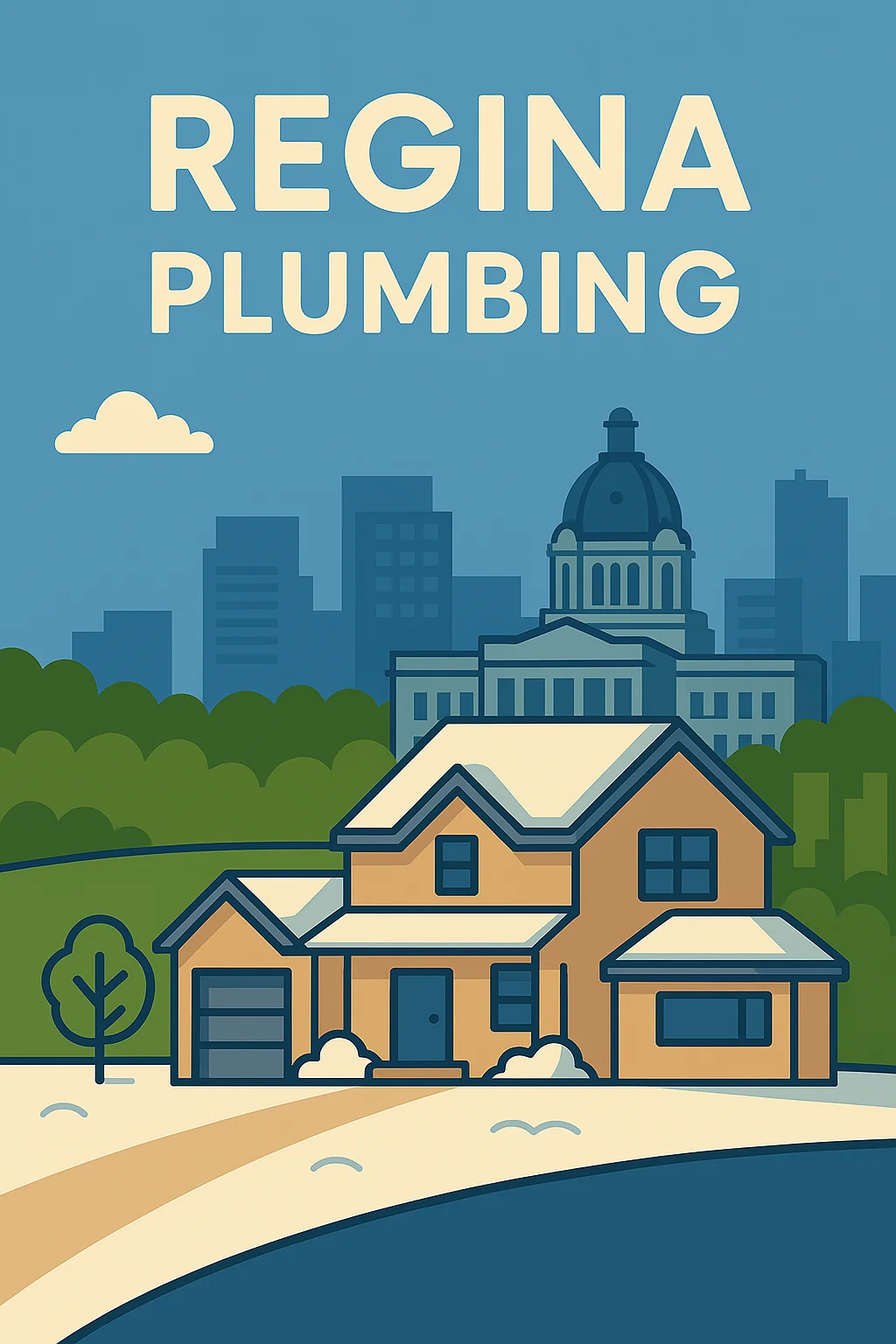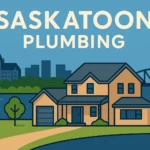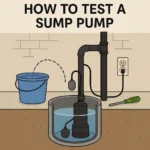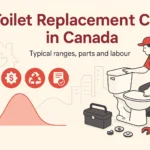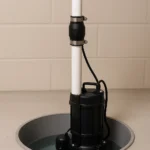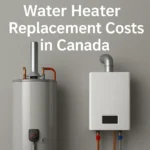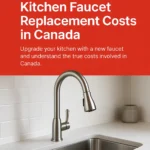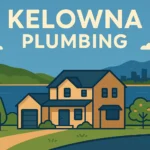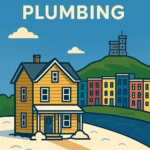Introduction
Regina, Saskatchewan’s capital with more than 230,000 residents, relies on Lake Diefenbaker water and has a mix of historic housing and growing suburbs. With some of the hardest water in Canada and extreme prairie winters, homeowners face unique plumbing challenges. From scaling in hot water tanks to frozen pipes and sewer blockages, regular plumbing maintenance is essential to avoid costly repairs.
Water Source, Quality & Hardness
- Source: Regina’s water comes from Lake Diefenbaker, treated at the Buffalo Pound Water Treatment Plant before being distributed through the city’s system (City of Regina).
- Quality: Annual reports confirm that Regina’s water meets or exceeds all provincial and federal health standards.
- Hardness: Water hardness is around 16.8 gpg (~287 mg/L), considered very hard (Aquatell).
Impacts of hard water in Regina homes:
- Heavy scale buildup on taps, appliances, and fixtures.
- Sediment accumulation in hot water tanks, lowering efficiency.
- Shorter lifespans for dishwashers, washing machines, and kettles.
- Water softeners are highly recommended to protect plumbing systems.
Housing Stock & Plumbing Systems
- Pre-1970 homes (Cathedral, Heritage, older central areas): Often contain galvanized steel or copper pipes, with some cast iron sewer laterals prone to corrosion and tree root intrusion.
- 1970s–1990s subdivisions (Uplands, Normanview, Walsh Acres): Mix of copper supply and ABS drain piping; some aging sump pump systems.
- 2000s–present (Harbour Landing, newer East Regina): Modern PEX or copper plumbing, ABS/PVC drainage, sump pumps, and backwater valves.
- Rural outskirts (RM of Sherwood and nearby areas): Many properties use private wells and septic tanks.
Common Plumbing Issues in Regina
- Scale buildup in hot water tanks, appliances, and fixtures due to hard water.
- Frozen or burst pipes in winter when plumbing in exterior walls or crawlspaces is uninsulated.
- Sewer blockages from aging cast iron laterals or tree root intrusion.
- Basement flooding during spring thaw or heavy rainstorms.
- Hot water tank inefficiency from sediment accumulation.
Seasonal Considerations
- Winter: Extreme cold increases risk of frozen pipes and burst lines.
- Spring: Snowmelt and rain can overwhelm drainage systems, testing sump pumps.
- Summer: Severe prairie thunderstorms sometimes overwhelm sewers.
- Fall: Dropping temperatures stress older pipes and plumbing connections.
Plumbing Costs in Regina
Most plumbers in Regina charge a minimum service call of about $300 before tax, which covers the first hour or inspection.
Typical Plumbing Prices in Regina
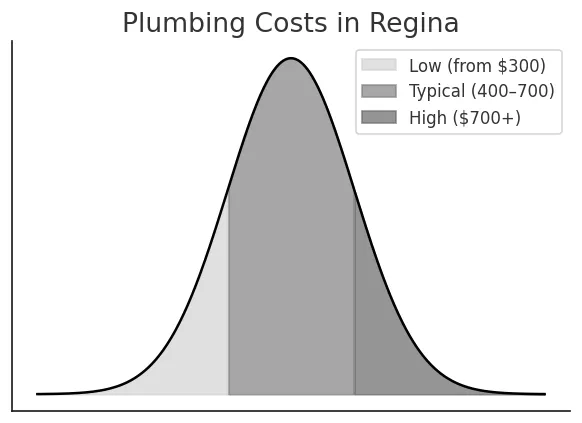
| Service | Low | Typical | High |
|---|---|---|---|
| Drain unclogging | $300 | $400 | $700+ |
| Faucet replacement | $300 | $450 | $850+ |
| Hot water tank replacement | $1,400 | $2,000 | $3,500+ |
| Emergency after-hours call | $450 | $700 | $1,200+ |
⚠️ Disclaimer: Prices are estimates only. Actual costs vary depending on contractor, materials, permits, and job complexity.
Local Permits & Regulations
Plumbing work in Regina must follow the Saskatchewan Plumbing and Drainage Regulations and often requires permits.
- Plumbing-Only Permit: Required for installing, altering, or repairing plumbing systems. (City of Regina)
- Not required: For clearing blockages, repairing leaks, or like-for-like fixture replacement.
- Inspection bookings: Call 306-777-7292 between 8–9 a.m. for same-day appointments.
- General contact: Service Regina, phone 306-777-7000.
- Provincial oversight: TSASK (Technical Safety Authority of Saskatchewan) regulates plumbing code compliance and inspections (TSASK).
Case Study: Hot Water Tank Replacement in Normanview
In 2023, a Regina homeowner in the Normanview area noticed reduced hot water supply and discoloured water from their 15-year-old tank. The hard water had caused sediment buildup and internal corrosion. A plumber replaced the tank with a new 50-gallon high-efficiency model and installed a water softener to prevent future issues.
- Problem: Hard water sediment clogging and tank corrosion.
- Solution: New hot water tank and softener installation.
- Cost: Approximately $3,900 including installation, disposal, and permits.
- Result: Improved hot water supply, lower energy use, and extended system lifespan.
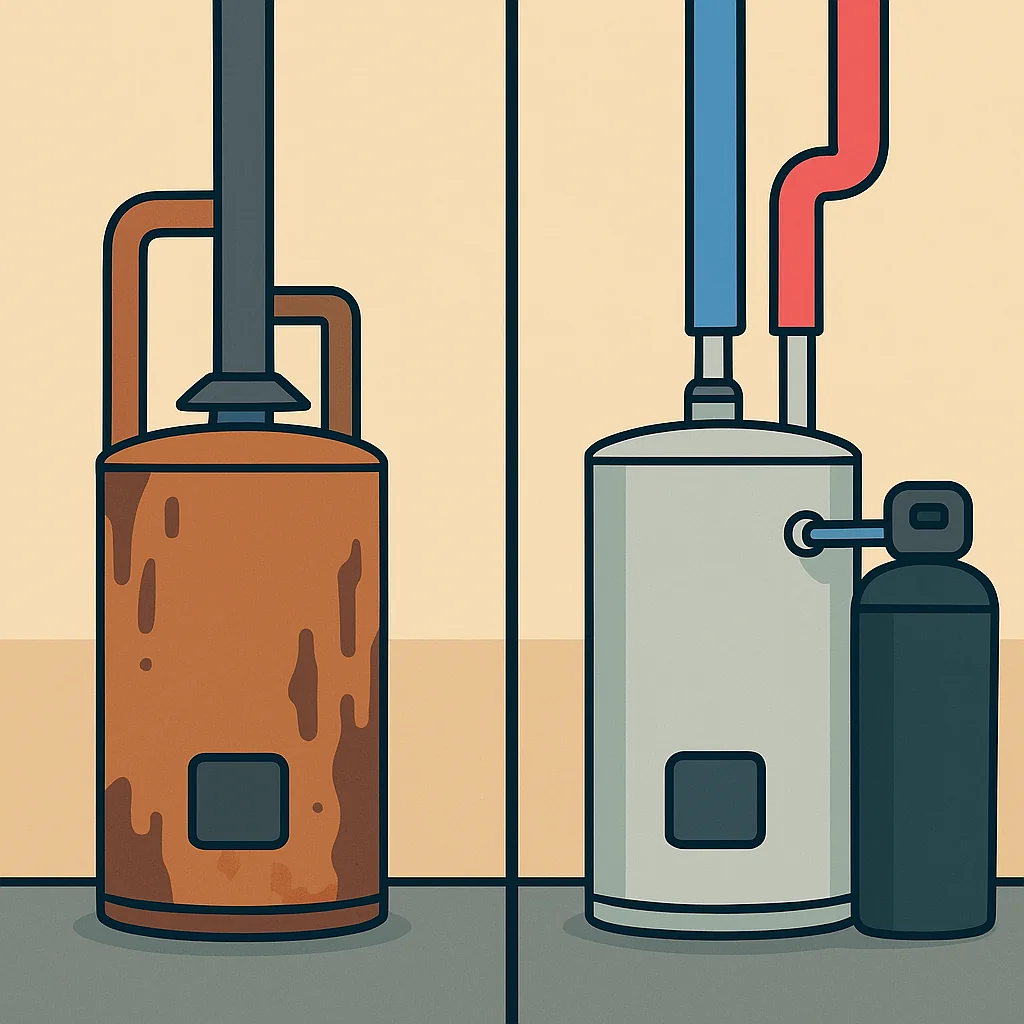
FAQs
Is Regina water hard?
Yes, Regina’s water is very hard at about 16.8 gpg (287 mg/L).
Do I need a water softener in Regina?
Highly recommended to prevent scaling and extend appliance life.
What plumbing risks are most common in Regina?
Frozen pipes, sewer blockages, basement flooding, and scale buildup.
How much does a plumber cost in Regina?
Expect a $300 minimum service call, with most jobs $400–$700.
Who issues plumbing permits in Regina?
The City of Regina issues plumbing permits, with oversight from TSASK.
Tips for Regina Homeowners
- Install a water softener to combat hard water scaling.
- Flush hot water tanks annually to clear sediment.
- Insulate pipes in unheated spaces before winter.
- Test sump pumps each spring.
- Confirm permit requirements before starting plumbing projects.
Conclusion
Regina homeowners deal with some of the hardest water in Canada, harsh winters, and aging sewer infrastructure. With proactive maintenance, timely upgrades, and compliance with permits and inspections, you can avoid costly emergencies and keep your plumbing system reliable.
👉 Book a licensed plumber in Regina today at unclogit.com or call 604-496-1661.

